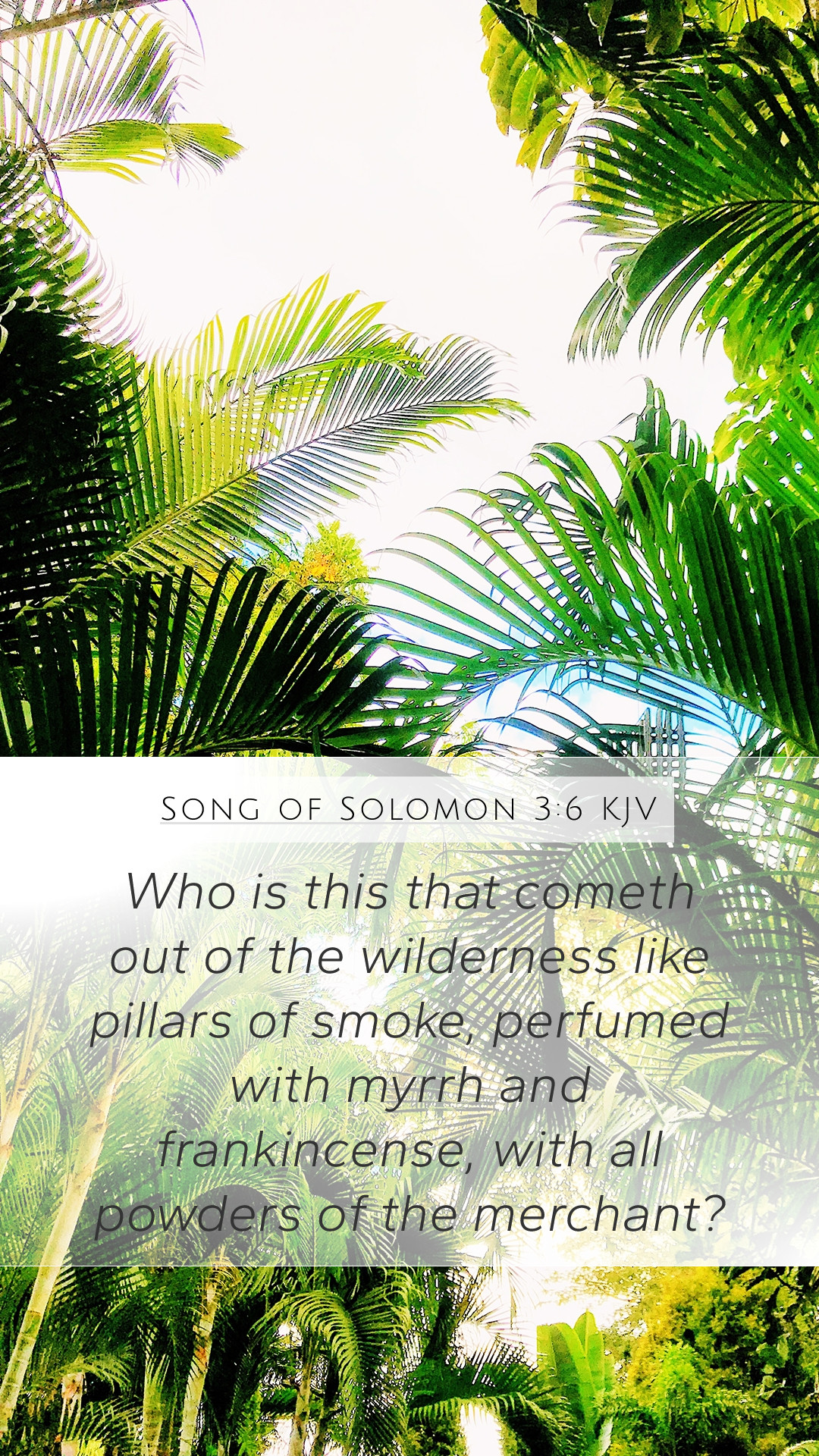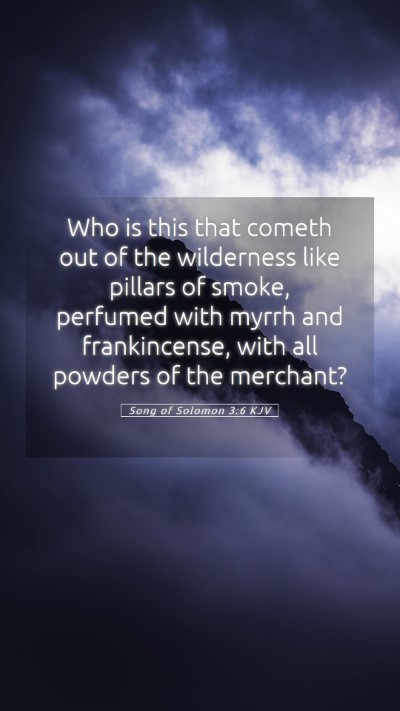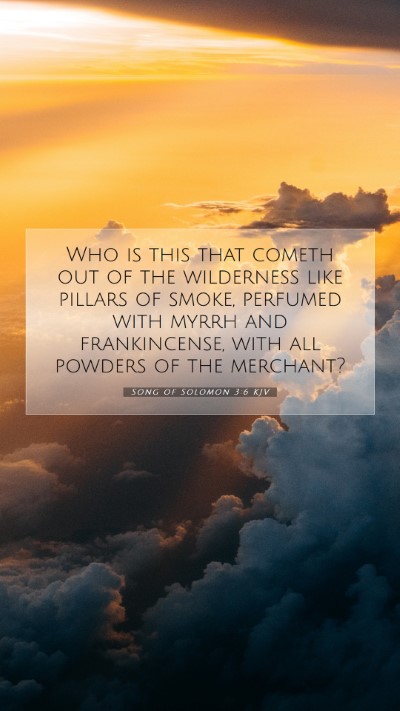Old Testament
Genesis Exodus Leviticus Numbers Deuteronomy Joshua Judges Ruth 1 Samuel 2 Samuel 1 Kings 2 Kings 1 Chronicles 2 Chronicles Ezra Nehemiah Esther Job Psalms Proverbs Ecclesiastes Song of Solomon Isaiah Jeremiah Lamentations Ezekiel Daniel Hosea Joel Amos Obadiah Jonah Micah Nahum Habakkuk Zephaniah Haggai Zechariah MalachiSong of Solomon 3:6 Meaning
What is the meaning of Song of Solomon 3:6?
Who is this that cometh out of the wilderness like pillars of smoke, perfumed with myrrh and frankincense, with all powders of the merchant?
Song of Solomon 3:6 Bible Verse Meaning
Understanding Song of Solomon 3:6
In this passage, the Song of Solomon introduces a poignant scene depicting the beloved's arrival, often interpreted as both a literal journey and a metaphorical representation of spiritual longing and love. The verse states:
"Who is this coming up from the wilderness, like a column of smoke, perfumed with myrrh and frankincense, with all the powders of the merchant?" (Song of Solomon 3:6)
Bible Verse Meanings and Interpretations
This verse is rich in imagery and symbolism, meriting deep biblical exegesis and careful scripture analysis. It speaks to the theme of love amidst the backdrop of nature and the wilderness, a vital motif in this poetic book.
Symbolism in the Verse
- Wilderness: Traditionally represents a place of trial or divine testing. The beloved's journey from the wilderness suggests transformation and growth through hardships, aligning her with a theme of spiritual awakening.
- Column of Smoke: This imagery conveys mystery and divine presence, reminiscent of God's presence among His people in Exodus.
- Perfumed with Myrrh and Frankincense: These fragrances symbolize purity and exaltation, hinting at the beloved's noble or divine qualities. Myrrh was often used in burial practices, suggesting depth and richness in her character and worth.
Insights from Public Domain Commentaries
Various commentators provide unique perspectives on this verse:
- Matthew Henry: He reflects on the significance of the beloved coming "up" from the wilderness, suggesting that true love often emerges triumphantly through life's challenges, enhancing the beauty of their connection.
- Albert Barnes: Barnes emphasizes the poetic nature of this verse, exploring how the use of earthy materials like myrrh and frankincense suggests the beloved's high virtue and the Lord’s favor resting upon her.
- Adam Clarke: Clarke notes the broader implications of "who is this," prompting readers to contemplate identity, love, and the nature of the beloved, reinforcing the connection between earthly love and divine love.
Application of the Verse to Daily Life
The verse invites reflection on the nature of love—both earthly and divine—and how we navigate the wilderness experiences in our lives. It encourages believers to consider how trials shape their character and how they present themselves to the world.
Historical Context and Cultural Background
Understanding the historical context of the Song of Solomon enhances our comprehension of this verse. The imagery used taps into the ancient Near Eastern culture of romance, where the wilderness might symbolize a deeper, spiritually rich relationship fostered through obstacles.
Cross References
- Isaiah 60:6: This verse also speaks of arrival and glorious gifts, relating to divine favor and recognition.
- Revelation 18:13: Myrrh and frankincense are mentioned along with other precious imports, emphasizing their value.
- Matthew 2:11: The gifts of the Magi to Jesus highlight the significance of myrrh in the context of worship.
Conclusion
In summary, Song of Solomon 3:6 serves as a powerful reminder of the intertwining of love and spirituality. The rich symbolism invites readers to delve deeper into their understanding of romantic relationships as reflections of their relationship with God. Such scripture analysis can be invaluable for Bible study groups or individual reflections.
Further Study and Resources
If you are interested in diving deeper, consider exploring Bible study resources and guides that cover key themes in the Song of Solomon, as well as engaging in online Bible study courses that can offer further insights into this profound scripture.


